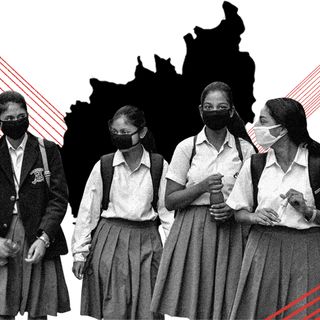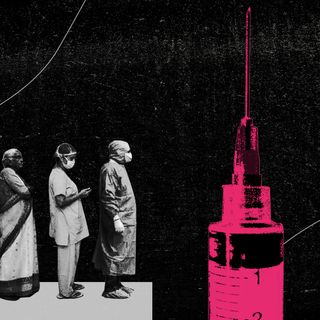The South Delhi Municipal Corporation (SDMC) has now made it mandatory for restaurants and meat shops to display whether the meat they are selling is halal or jhatka. In the meeting for the passing of the proposal, authorities said this was regarding “ensuring the very right” of the consumer.
Restaurant owners and associations, however, have flagged that the new rule could create unnecessary issues for an industry that is still trying to recover from the financial hit it received since March because of the pandemic.
Halal means ‘permissible’ in Arabic and halal food adheres to Islamic law. In halal butchering practices, the animal bleeds out after cutting a vein; in jhatka, the animal is slaughtered in one go.
The proposal, which was passed in the House of the SDMC, would affect 90% of the thousands of restaurants operating the ward of the zones falling under SDMC. “It is not displayed by them whether the meat being served by the restaurants is halal or jhatka. … Eating halal meat is forbidden and against religion for Hindus and Sikhs,” says the proposal. “Therefore, this meeting resolves that this direction be given to restaurants and meat shops that they write mandatorily about the meat being sold by them.”
The leader of the SDMC House also claimed that along with raising awareness about what one consumes, the move will also increase employment opportunities among the Khatik community—a scheduled caste community, some members of which slaughter animals using the jhatka method. “The Khatik community will get income benefits as they slaughter using the jhatka method, and if it is promoted, their sales will increase,” he said.
But restaurant and meat shop owners say the drawbacks outweigh any benefits and the new rule is creating a problem where none existed. Most restaurants and meat shops across Delhi-NCR sell halal meat, as it is universally accepted and widely available–in fact, over 80% of meat supplied in Delhi is of the halal variety.
Related on The Swaddle:
Nagaland’s Dog Meat Ban Is an Exercise in Bias, Not Animal Rights
Restaurants in the city are planning to lobby the South MCD to reverse its order on labeling meat. The owners say that the patrons and the customers hardly care about this aspect—it’s more about the price of the meat. Additionally, they say the measure could lead to several logistical issues: it would be very difficult for them to keep two kinds of stock or get an easy supply of both types of meat.
Meat shop owners also oppose the measure, saying bigger clients focus more on price than on the method of slaughtering the animal. Instead of the new rules, the meat shopkeepers say, the MCD should crackdown on illegal roadside meat sellers that are unregulated and carry the risk of spreading disease.
Some also feel the provision also misrepresents both Sikhism and Hinduism; while Sikhs have specified methods of slaughter, for Hindus, there are no clear injunctions on it and thus clubbing them together is erroneous. It also comes at a time when there have been several Hindutva campaigns against the “Halal economy.” In May 2020, Hindutva outfits like Sanatan Sanstha and Hindu Jagruti carried out a “boycott halal products” campaign on social media, targeting halal certification given to products.
A similar proposal was passed by the East MCD in 2018 for shop owners. However, there has been no enforcement, action, or fines to date. Aam Aadmi Party, which is in charge of the Delhi government, said civic bodies should focus on paying salaries to employees than on such issues: “Whether meat is jhatka or halal is already mentioned in most places. BJP should instead have focused on cleaning the areas, which is a responsibility given to them, or controlling corruption in MCDs.”




